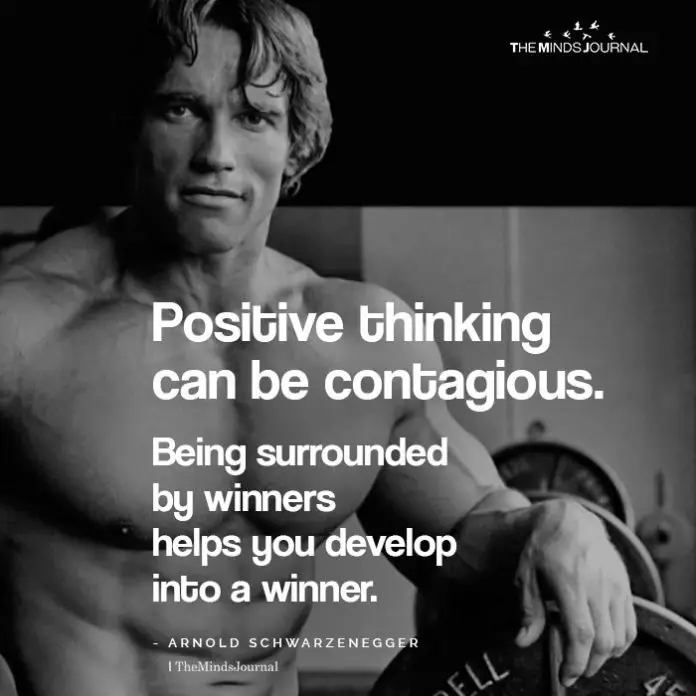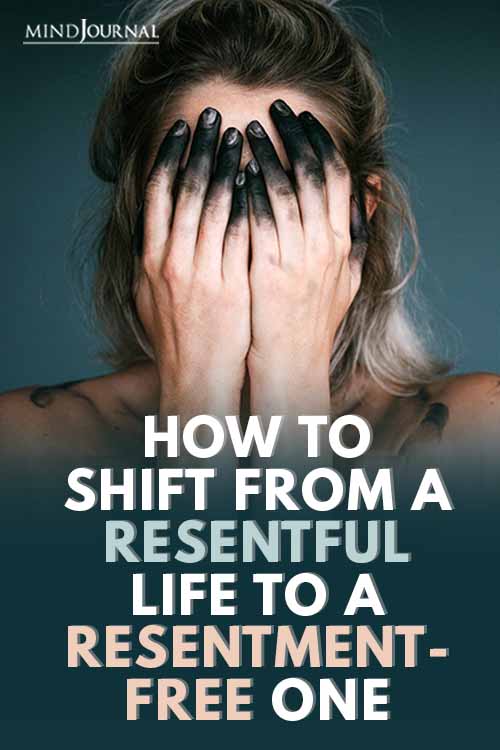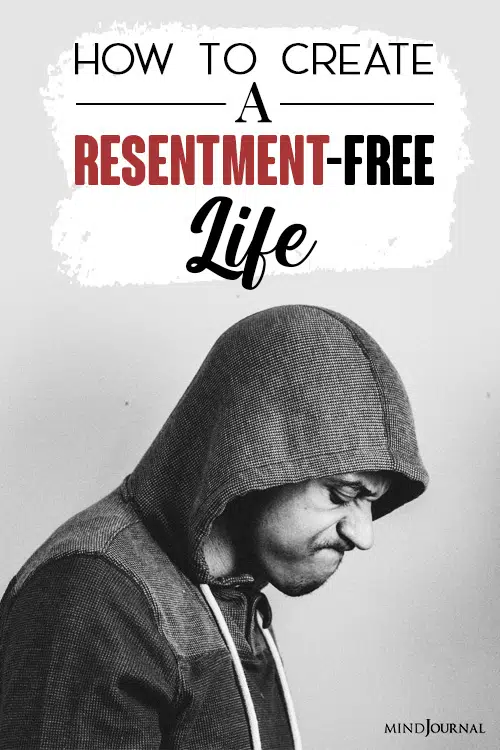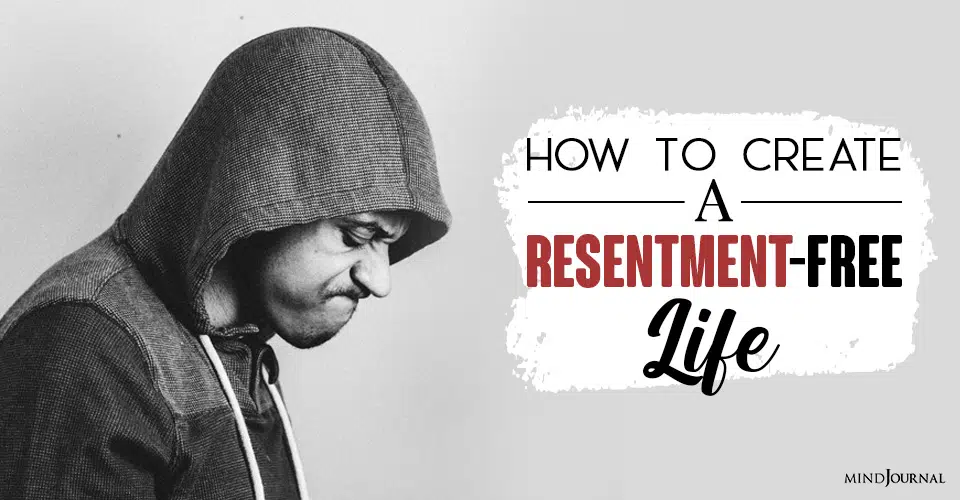Living a resentful life day after day, will not only deplete you emotionally, it will also stop you from living your life to the fullest.
These are the questions most of my clients ask, once they realize that chronic resentment keeps them stuck in the depressive, angry, or anxious states that brought them into treatment:
Isn’t my resentment valid?
Isn’t it justified?
Yes, of course, your resentment is valid and justified. And you have an absolute right to be resentful. But those are the wrong questions. The right questions are:
Do I want to be resentful?
Is resentment keeping me from being the person, worker, partner, and parent I most want to be?
Resentment is the persistent feeling that we’re being treated unfairly—not getting due respect, appreciation, affection, help, apology, consideration, praise, or reward. It keeps us locked in a devalued state, wherein it’s extremely difficult to improve or appreciate or to connect positively with people in general.
Related: 7 Mental Habits That Make You Feel Bitter With Time
Resentment is the road to:
- Bad sex
- Failure at work, school, relationships
- Depression and anxiety
- Aggressive Driving
- Community breakdown
- Ill Health
- Violence
A lot of your resentment isn’t even your own; you probably caught it from someone else. It’s one of the most contagious emotional states.
If you’re around a resentful person, you’re likely to become resentful. If someone comes into work resentful, by lunchtime everyone around that person is resentful. If you’re in one mood when you come home, and someone else in the house is resentful, you’re likely to join their resentment. If you encounter a couple of jerks on the road on the way home, you’re likely to make everyone in the house resentful once you get there.
Resentment passes:
- Workstation by workstation throughout the company
- Locker by locker in school
- Car by car down the road
- Room by room at home
In the workplace, resentment is:
- The hidden cause of most failure (deteriorates judgment, increases errors)
- Breeds stagnation, spite, infighting, backstabbing, burnout, sabotage, internal collapse
- Prepares the way for violence (the resentful employee faced with something unexpected, getting fired or not getting a raise or promotion, is at a risk to be violent).
When it comes to health, resentment increases the risk of:
- Heart disease and hypertension
- Stroke
- Cancer
- Alcoholism and drug addiction
- Compulsive behavior
In close relationships, resentment is:
- The heart disease of families (#1 family killer)
- Destroys trust and intimacy
- Creates continual power struggles or persistent passive aggression
- Eventually leads to contempt, disgust, detachment
Chains of Resentment Are Hard to Break
The habitual nature of resentment means that:
- It’s never specific to one behavior, nobody resents just one thing.
- Its content is rarely forgotten; each new incident of perceived unfairness automatically links onto previous ones, eventually forging a heavy chain.
The chain of resentment always extends into the distant past. In advanced stages, it goes into the future. That’s when you hear things like, “It’s going all right now, but she’ll find some way to screw up the weekend,” or, “It’s fine at the moment, but the ‘real him’ will come out, just wait.”
The tremendous effort required to drag the chain of resentment through life makes us hyper-vigilant for possible ego offenses, lest they “sneak up” on us. The chain of resentment makes us look for things to resent.
This creates frequent sour moods and an atmosphere wherein no offense is too trivial or too unrealistic to be added as yet another link on the chain. We’ll find things to resent in the news, traffic patterns, a dearth of parking places, the temperature of drinking water, and in other people’s tastes, thoughts, opinions, mannerisms, and feelings.
Related: 10 Common Habits of Bitter People And How to Avoid Them
A member of a court-ordered class I once taught had a colorful way of describing the effects of resentment. He said that dragging the chain of resentment through life is like carrying around a bag of horse manure. (Okay, he did not say “manure.”) You want to smear the bag of horse doo-doo in the face of the person you resent.
So you carry it around, waiting for the opportunity, and carry it around, and carry it around, and carry it around. And who stinks?
Part II of this post will focus on a resentment-free life.
Part one of this post outlined the effects of living with a chain of resentment. This post urges readers to break the chain.
To begin, say out loud:
- My emotional well-being is important to me.
- My emotional well-being is more important than everything I resent.
- My emotional well-being is more important than other people’s bad behavior.
Chances are, your conviction level went down on the third statement because that sounds like letting someone off the hook. And therein lies the self-defeating nature of resentment; it devalues our own emotional well-being and makes us a living monument to someone else’s unfairness. So this time, say aloud:
My emotional well-being is important to me, period!
Don’t worry if this appears selfish. Your emotional well-being is intertwined with that of the people you love, so if you focus on your long-term well-being, you will enhance theirs automatically.
Related: 15 Life Changing Lessons to Learn from Wayne Dyer
The only real choice in regard to well-being is increasing the value of experience or decreasing it, that is, valuing or devaluing. In close relationships, the only real choice is between compassion and kindness or resentment and contempt. We raise the value of experience by improving, appreciating, connecting, and protecting. We lower it by blaming and denying.
Ultimately, the choice between valuing and devaluing is a choice between empowerment and powerlessness.
Empowerment: Making your experience better in the real world.
Powerlessness: Making yourself miserable because the real world isn’t the way it “should” be.
Powerlessness: Focus on what you cannot do.
Empowerment: Focus on what you can do.
Improve
“Improve” doesn’t mean “fix.” It means making things a little better. Improvement is incremental. Once you make things 5 percent better, it’s easier to make them 10 percent better. Then it’s easier to make things 20 percent better, and so on. The motivation to improve is more empowering than the results, even when the results feel better.
Write down one thing you can do to improve (not necessarily “fix”) your experience of something you resent.
Appreciate
In close relationships, appreciation reduces resentment; failure to appreciate increases it.
Write down one quality or behavior of someone you resent that you can appreciate more.

Valuing the Tasks You Need to Do
Chances are, you did it automatically when you started a new job: You created value in the things you needed to do and found a way to be interested and focused, even if those tasks were not inherently interesting. You only forgot how to do it when resentment took over.
Be clear on why performing necessary tasks honor your deeper value. For example, sweeping the floor for your family’s well-being makes more sense than doing it for your boss’ personal power trip. The boss’s power trip is the boss’ affliction. Your family’s well-being is your deeper value.
Identify a deeper value that will give you greater energy and focus to do a task that you need to do. (Example: basic humanity, family, growth/development, appreciation, religion, compassion, kindness, and so on.)
Most of the things we resent are not very important in the wider context of our lives. Identify something you resent, and then list three things that are more important to you that you would prefer to think about.
Write down what you can do to increase self-value by 5%. (Examples: experience your basic humanity through compassion, kindness, love, affection, and your desire to heal, correct, improve, create, repair, renew, grow, build.)
Related: 10 Pieces Of Timeless Spiritual Wisdom To Help You Get Through Hard Times
Valuing other people is so important to your emotional well-being that you don’t want to leave it up to them. Value others for your benefit, regardless of whether they deserve it. Whether they behave well or not, recognize the capacity of nearly everyone to:
- Form emotional bonds.
- Feel compassion.
- Rescue a child in danger.
- Heal, correct, improve, create, repair, renew, grow, and build..
Despite the cliché, we cannot “let go” of resentment. (It just keeps coming back.) Rather, we need to crowd it out by creating more value. When core value is high, resentment as an ego defense is unnecessary.
Visit Dr. Steven Stosny’s website Compassion Power for many more interesting articles.
Written By Steven Stosny
Originally Appeared In Psychology Today (Article Link 1 and Article Link 2)
Feeling demotivated, and negative at times is okay because at the end of the day you are human; it’s not possible to be perfect and feel positive all the time. But, if you continue to live a resentful life, and refuse to let any kind of optimism in, you will be the one who will end up feeling worse. Resentment is only a part of life, don’t make it your life.
If you want to know more about how you can stop living a resentful life, check this video out below:










Leave a Reply
You must be logged in to post a comment.